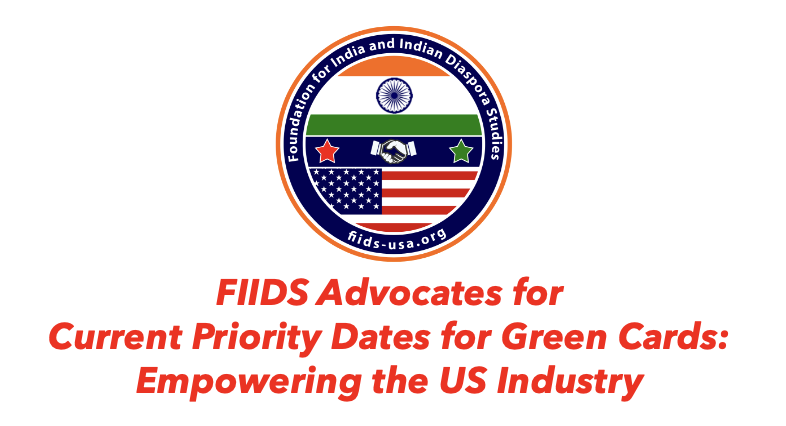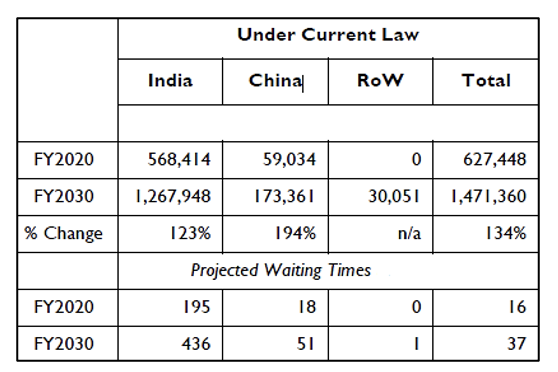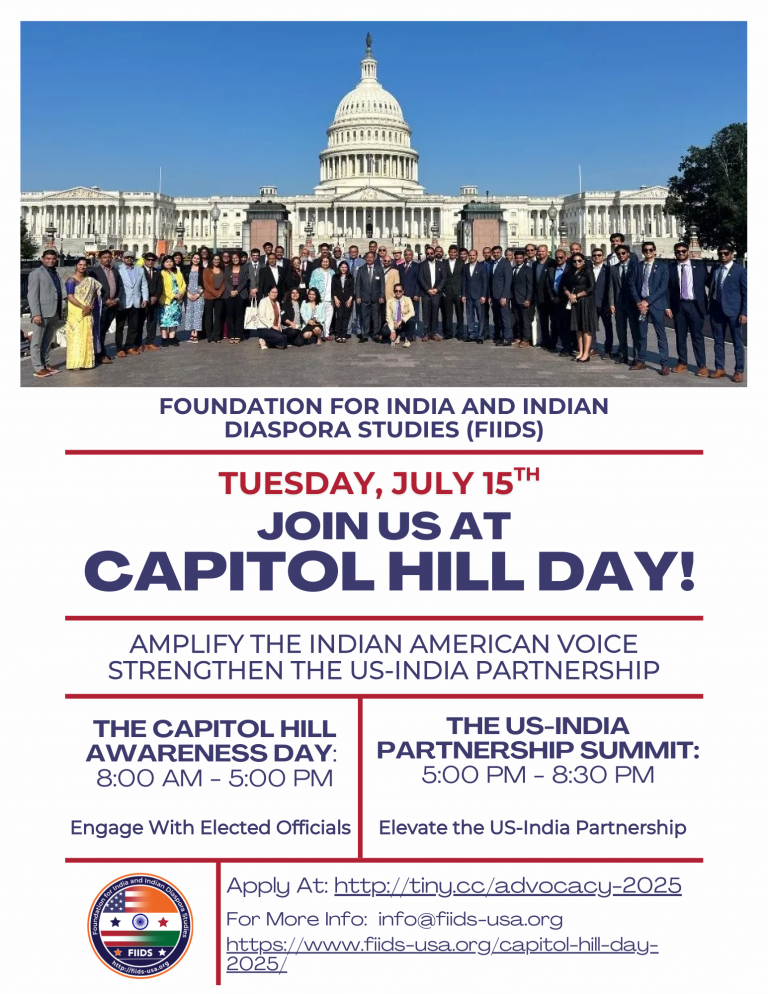
Foundation for India and Indian Diaspora Studies (FIIDSUSA) appeals for your support requesting the President Biden, the bureau of Consular Services(the department of State) and the USCIS (Department of Homeland Security) to make priority date for current for GC to reduce 195 year long wait period. (Ref: https://www.everycrsreport.com/files/20200326_R46291_a4731eeb00f39050b6df66d326d0356438414f03.pdf)

The current situation surrounding the seven percent country cap on employment-based green card allocation is causing severe repercussions, particularly for countries like India, where the backlog has reached an astonishing 195 years. This backlog disproportionately affects Indian tech professionals, who constitute a significant portion of highly skilled STEM talent and US-educated graduates, playing a crucial role in maintaining the United States’ competitive edge in the technology industries. However, the backlog has created a significant barrier, hindering these talented individuals from contributing meaningfully to the country’s growth and innovation.
The impacts of this backlog are multi-faceted and far-reaching:
- Stifling Growth in Emerging Industries: Skilled immigrants, especially those from India, are crucial for driving innovation in vital sectors such as Artificial Intelligence and cybersecurity. However, due to the prolonged waiting period for their green cards, these talented professionals are unable to contribute to the development of these emerging industries. This restraint hampers the US’s ability to compete against countries like China in the global technology space.
- Limited Entrepreneurship and Startup Participation: The green card backlog binds skilled immigrants to their current employers, preventing them from exploring entrepreneurial ventures or participating in startups. As a result, the US misses out on the potential economic growth and job creation that these entrepreneurs could have stimulated, ultimately impacting the country’s industry and economy.
- Inability of Family Members to Contribute: The backlog’s adverse effects extend to the family members of skilled immigrants who are unable to actively contribute to the US economy. This situation not only hampers their own aspirations but also results in a loss of potential human capital for the nation.
- Impact on Documented Dreamers and Family Separations: The prolonged backlog further exacerbates issues for children of skilled immigrants, documented dreamers, who may age out of legal status at 21 years, leading to family separations despite having spent most of their lives in the US. This creates emotional distress and instability for affected families.
- Brain Drain to other countries: Furthermore, the green card backlog contributes to a concerning brain drain phenomenon, where disheartened professionals are enticed by opportunities in other countries. For instance, Canada’s recent initiatives to offer immediate work permits and accelerated permanent residencies to holders of US H1B visas have become alluring alternatives for skilled immigrants stuck in the US green card backlog
Given these critical challenges, it is imperative to seek an administrative solution from the Biden administration, the bureau of Consular Services, and the USCIS. One possible remedy is to make the priority dates for Employment Authorization Document (EAD) adjustments current, building on a precedent set during the Bush Administration in 2007. This action would allow individuals in the 195-year-long green card backlog to apply for EAD and Advance Parole, granting them the ability to start companies, develop patents, hire American workers, change jobs if desired, and have more agency over their lives rather than being tied to a single employer indefinitely.
By implementing such an administrative solution, the US can unlock the potential of over a million skilled immigrants and their families, providing them with the opportunity to actively contribute to the country’s progress. Not only will this foster economic growth and innovation, but it will also promote inclusivity and strengthen the United States as a nation that values and welcomes diverse talent from around the world.
We wholeheartedly thank and support the bipartisan appeal led by Congressmen Raja Krishnamoorthi (D-IL) and Larry Bucshon (R-IN) to make the priority date current for employment-based green card backlogs. We urge all representatives of the US Congress to unite and support these crucial efforts.
For the reference, here is the visa bulletin issued in 2007.
FIIDS launched Change petition for this ask https://chng.it/VVp4h5ngv5
Appeal media coverage:




